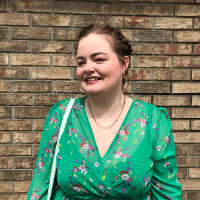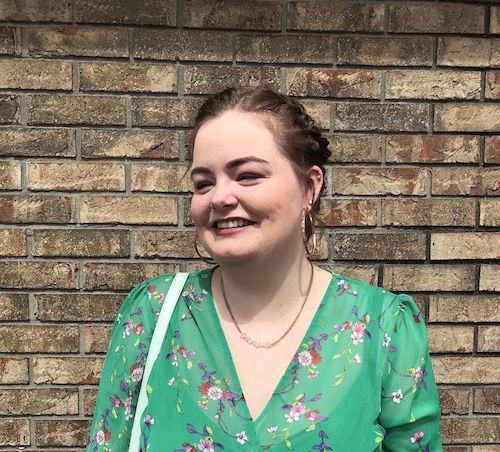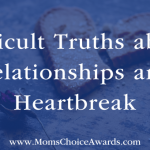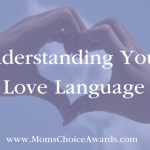 Draven Jackson
Draven Jackson
Blogger | Teacher
Twitter
“Anything is possible when you have the right people there to support you.” Misty Copeland said it best in this quote about love and friendship, reminding us of the true fact of life that everybody needs somebody. In order to fully experience the incredible joys that life has to offer, human beings need different kinds of relationships and communities where they can feel safe, secure, and cared for.
But relationships can honestly be a bit terrifying at times, and we’ve all experienced both romantic partners and friends that weren’t good for us or didn’t stick around as long as we thought they would. The fear of being rejected or hurt can make it hard to want to put yourself out there again, but it’s important to remember that almost everyone feels afraid. Trying to find relationships means we have to trust people not to hurt us, and that trust can be stressful.
Here are five of the scariest lessons I’ve learned about love and friendship, and the ways my relationships have become stronger once I’ve acknowledged the parts of them that scare me.
Relying on People Builds Healthier Relationships
 One of the scariest parts about love and friendship is that it involves relying on other people. If you’re at all like me – independent to a fault at times and prone to bottling everything up and trying to deal with it all on your own – the idea that there are people who are willing to and want to help you can seem a bit overwhelming. In my mind, I know that my friends are happy to be there for me when I need them, but the idea of “burdening” them with my problems makes it hard for me to ask for help.
One of the scariest parts about love and friendship is that it involves relying on other people. If you’re at all like me – independent to a fault at times and prone to bottling everything up and trying to deal with it all on your own – the idea that there are people who are willing to and want to help you can seem a bit overwhelming. In my mind, I know that my friends are happy to be there for me when I need them, but the idea of “burdening” them with my problems makes it hard for me to ask for help.
However, allowing others to hold some of your anxieties and the problems plaguing your life can actually help you build healthier, more stable relationships. For one thing, finding out whether you can rely on your friends and romantic partners can help you decide whether those are healthy or unhealthy relationships. If your friends/partners seem unwilling to listen to you or are prone to flaking out when you need them, those may not be the relationships you need in your life.
For the friends/partners who are willing and able to help you, giving them the chance to be there when you need them may make them feel more valuable and necessary in your life. Oftentimes, feeling needed can make you feel validated and important, and this feeling of importance can help strengthen the relationship overall.
Vulnerability and Honesty are the Keys to Success
For me, the scariest part of love and friendship – or concerning relationships that I can feel are becoming vital and valuable to me – is knowing I will need to be vulnerable and honest about my experiences and how I am feeling. For casual relationships, vulnerability isn’t a requirement for helping the relationship grow stronger. If it’s someone you just see on occasion for dinner or drinks, there is usually no need to lay out your emotions, thoughts, and fears for them to learn about.
But when it comes to close friendships or new romantic partners, there is an expectation of vulnerability and honesty. You have to tell the people you want to be close with how you’re feeling and what you’re thinking, and when problems arise in the relationship, you have to be willing to sit down and discuss everything openly. This level of honesty can be terrifying, especially if you’re someone who struggles with being vulnerable and asking for help.
However, if you want to build strong, healthy relationships, you have to be willing to communicate openly and honestly about what you’re feeling and experiencing. And, hopefully, the other person will do the same so that together you can create a more stable relationship.
No One Has It All Figured Out
Not only is this a scary lesson about love and friendship, but it is also simply a fact about life: no one has it all figured out. As a child, oftentimes you believe that the adults in your life innately understand what to do in any situation. They know how to find good friends and healthy relationships, they know how to be an “adult,” and they don’t need to ask for help from anybody. But once you become an adult yourself, you realize that is simply not true.
No one knows what they’re doing 100% of the time, and there are always areas that we feel we may be lacking in our lives. And even though they may seem more capable or knowledgeable about life and relationships, your friends and partners are also just figuring it all out as they go along. It’s okay to cut you and the people around you a little slack as you work through the struggles of life together.
Your Best Friend and Your Partner Should Be Held to the Same Standard
One thing I’ve learned about love and friendship through watching how I and my friends treat romantic and platonic relationships is that your best friend and your partner should be held to the same standard. While of course there are definitely differences between the two types of relationships, certain aspects should remain the same. For example, if you expect your best friends to be reliable, communicative, and understanding, then you should have the same expectations for your partner. Using the high standard you hold your friends to for your romantic relationships can help you avoid falling prey to unhealthy or toxic relationships.
On another note, you can’t let your fears and anxieties destroy a romantic relationship if you wouldn’t let them bother you in a friendship. For instance, imagine that both your best friend and your partner haven’t messaged you all day. Would you believe your friend no longer cares for you if she goes a day without talking to you? Of course not – you trust her to be there for you, and you know you’re important enough to her that one day of silence won’t change that.
However, it can be easy to feel more anxious in a romantic relationship and lose that confidence. Trust that your partner cares as much about you as your best friend does, and believe that you are as important to them as you are to your best friend. This can help you feel more secure and assured in all your relationships.
The First Argument Can Make or Break Any Relationship
A terrifying aspect of love and friendship is the idea of “the first argument.” Every close relationship will experience the first argument – if you’re around someone frequently and begin to develop a level of trust and intimacy that surpasses “casual” relationships, it’s impossible to avoid all confrontations. And no matter how perfect your friend or partner may seem, something will always arise to test the foundation of that relationship.
You can learn a lot from the first argument of a relationship. Sometimes, it can lead to an open discussion that allows everyone to be honest about their thoughts and fears, which can make you stronger. But it can also teach you that maybe the friend or partner you’re with isn’t as compatible with you as you thought they were. And while the second lesson can be incredibly painful, at the end of the day, knowing the truth is for the best and can help you find a more secure, stable relationship in the future.
What scary lessons have you learned about love and friendship? Tell us in the comments!
 About Draven Jackson
About Draven Jackson
Draven is an avid writer and reader who enjoys sharing her opinions on movies, books, and music with the rest of the world. She will soon be working as a teacher in Japan and hopes to use her experience to connect with other teachers and students around the globe. Draven spends most of her time at home with her family, her dogs, and her ferret.
To see more, view all posts by Draven Jackson here.






3 Comments on “The Scariest Lessons I’ve Learned about Love and Friendship”
Wonderful blog even though parts are difficult to think about.
Very nice!
This is all so true. I have a hard time being vulnerable with people because of the chaos I’ve grown up in, but the more I work on it, the deeper and more connected my relationships become. It’s all a work in progress :)